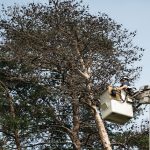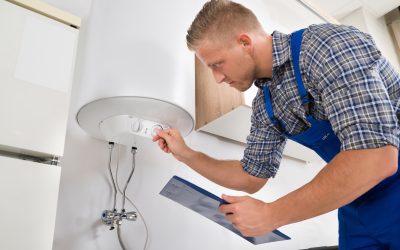Arizona’s monsoon season brings dramatic weather shifts—heavy rain, sudden winds, dust storms, and rapid temperature changes. While this seasonal pattern offers relief from the summer heat, it can also create major challenges for residential plumbing systems. Homeowners often begin searching for an emergency residential plumber or 24 hour residential plumber when clogged drains, backups, or leaks appear unexpectedly.
JP Plumbing frequently assists homeowners in Surprise, AZ who are caught off guard by plumbing problems triggered by monsoon-related conditions.
Being proactive before monsoon season begins can significantly reduce the risk of plumbing emergencies. Understanding how weather affects your plumbing and knowing what to prepare for will help protect your home from preventable issues.
How Monsoon Weather Impacts Home Plumbing
Monsoon conditions put pressure on both indoor and outdoor plumbing systems. Several factors contribute to potential failures during this season:
- Wind-blown debris blocking pipes and drainage
- Heavy rainfall overwhelming drainage systems
- Ground shifting and soil saturation affecting underground pipes
- Sudden temperature changes impacting seals and pipe joints
- Increased demand on sump pumps and drainage systems
Because these issues often appear suddenly, many homeowners rely on home plumbing services to assess or repair unexpected damage.
Inspect Outdoor Drains and Gutters Before Storms Hit
One of the first steps in preparing your plumbing for monsoon season is clearing outdoor drains, gutters, and downspouts. Heavy rain must flow away from your home properly—otherwise, water can pool against the foundation and cause moisture intrusion or plumbing complications.
Blocked drains can lead to:
- Overflowing gutters
- Water entering basements or crawl spaces
- Soil movement around underground plumbing
- Foundation erosion
A thorough inspection ensures water flows freely and reduces the risk of backups during intense rainfall.
Ensure Your Sewer Lines Are Ready for Increased Flow
Monsoon season can overwhelm sewer systems—especially older or partially clogged lines. When debris, tree roots, or grease buildup restricts flow, sudden downpours increase pressure, which can lead to:
- Sewage backups
- Slow drains
- Foul odors indoors
- Standing water in showers and tubs
Having your sewer lines inspected or cleaned before monsoon season reduces the chances of experiencing one of the most common plumbing emergencies in Surprise, AZ.
Check for Signs of Pipe Damage or Corrosion
Heavy rainfall and soil saturation can cause underground pipes to shift or crack. Pipes that are already aging, corroded, or weakened are especially vulnerable during monsoon season.
Common signs of pipe damage include:
- Damp spots on walls or flooring
- Low water pressure
- Sudden spikes in water bills
- Gurgling noises from drains
- Unpleasant odors around plumbing fixtures
If you notice any of these signs, contacting an emergency residential plumber can prevent more severe damage before storms worsen the issue.
Inspect and Protect Your Water Heater
Temperature fluctuations during monsoon season can stress older water heaters. Additionally, sediment buildup often worsens with Arizona’s hard water, reducing efficiency.
Before the storms arrive, homeowners should:
- Check for leaks around the tank
- Inspect the pressure relief valve
- Drain sediment from the tank if needed
- Look for rust, corrosion, or unusual noises
Proactive water heater maintenance helps ensure you’re not left without hot water during the peak of monsoon season.
Test Sump Pumps and Install Backup Systems
For homes equipped with sump pumps or drainage pumps, monsoon storms can push these systems to their limits. To avoid flooding, pumps should be tested before the season begins.
A thorough check includes:
- Ensuring the pump turns on automatically
- Clearing debris from the pit
- Confirming the discharge line is unobstructed
- Testing backup power sources
For homeowners without a sump pump, it may be worth considering installation if their home sits in an area prone to water pooling.
Secure Outdoor Fixtures and Check Hose Bibs
High winds and heavy rain can damage outdoor plumbing fixtures. Hose bibs, irrigation systems, and exposed pipes should be checked for wear and reinforced as needed.
Homeowners should:
- Disconnect garden hoses
- Inspect hose bibs for leaks
- Ensure irrigation lines are properly buried
- Protect exposed pipes with insulation
These simple steps help prevent damage that can turn into a costly emergency.
Know When to Call a Professional During Monsoon Season
Despite careful preparation, emergencies can still occur. Monsoon-season plumbing issues often require quick action to prevent serious water damage, mold, or structural issues.
If you experience:
- Sudden drain backups
- Flooding inside or outside the home
- Burst pipes
- Strong sewage odors
- Complete loss of water pressure
It’s important to contact a professional immediately. Many Surprise homeowners rely on 24 hour residential plumber services during storm season when time-sensitive issues arise.
For dependable support, homeowners can explore
professional plumbing help to connect with experienced plumbers who understand how monsoon conditions affect Arizona plumbing systems.








